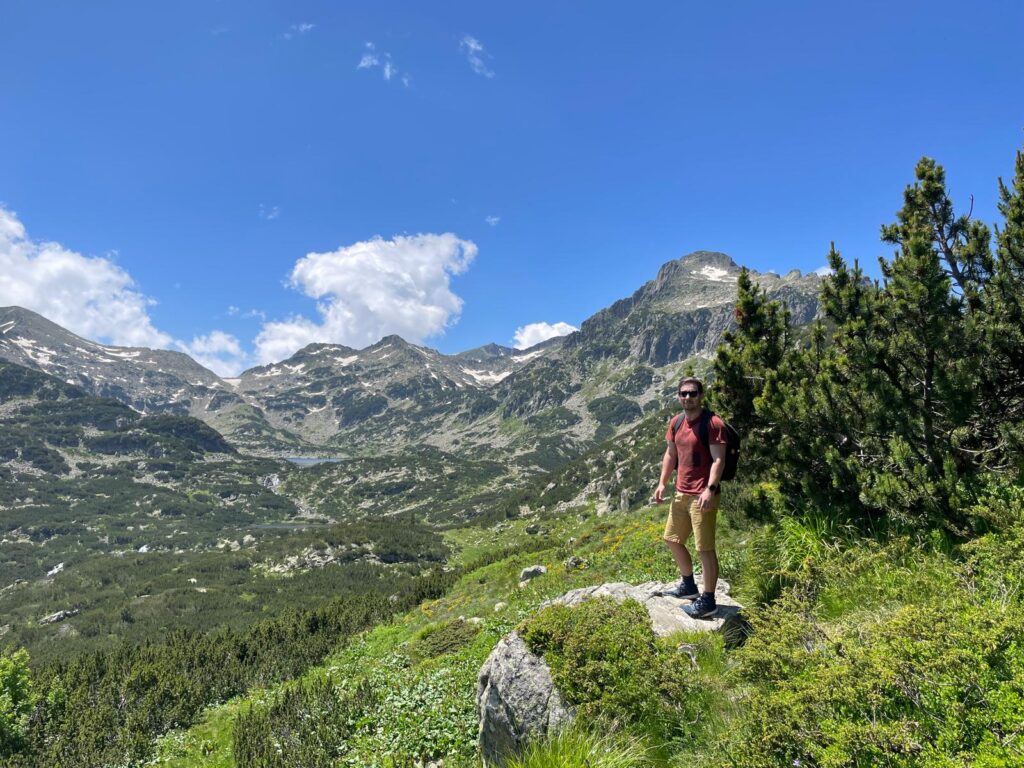Bulgaria is probably one of my favorite countries as a digital nomad. One of the reasons is that Bulgaria tax residency offers some of the lowest tax rates in Europe.
I’ve helped more than hundred people move their tax residency to Bulgaria. If you want my help, contact me!
Overview of Tax Residency in Bulgaria
- Flat 10% income tax for most income; both for individuals and companies.
- Lump-sum cost deduction of 25% for freelancers bringing the tax rate down to 7,5%.
- High social contributions but capped at a relatively low amount.
- Flexible criteria for tax residency.
- Great community of digital nomads.
Benefits of Being a Tax Resident in Bulgaria
Bulgaria offers some of the lowest tax rates in Europe.
Being a tax resident of Bulgaria give you access to all the amenities of Europe (e.g. banking, free movement), while not punishing you severely for it with high tax rates like most European countries.
Therefore, it is a great option for digital nomads who want to maintain a stable tax residency in Europe.

Taxes in Bulgaria
Let’s now have a look at the different taxes that you have to keep in mind if you obtain tax residency there.
Flat Personal Income Tax Rate
The personal income tax rate in Bulgaria is a flat 10%.
So, irrespective of the amount you make, your tax liability will amount to 10%. This unlike most Western countries where they have a progressive tax rate and you pay more taxes if you make more.
Furthermore, as a freelancer you can even lower your tax rate to 7,5%.
The reason for this is that you get a lump sum cost deduction of 25%. Therefore, the 10% only applies on 75% of your revenue.
On capital gains you also pay the standard 10% rate.
Nevertheless, you can get a 10% cost deduction bringing the actual tax rate to 9%.
Moreover, some capital gains get an exemption from tax altogether.
Dividends are currently taxed at a 5% rate. Yet, there is a proposal to equalize the tax rate with the standard rate of 10%.
This is mainly important if you work through a company or you are an investor living of dividend income.
Social Contributions in Bulgaria
Like in most countries, Bulgaria distinguishes between employees and self-employed individuals for the calculation of social contributions.
If you work as an employee, the following rates apply:
- Employer: 18,92% – 19,62%
- Employee: 13,78%
Self-employed individuals need to pay all social contributions themselves and for them the rate varies from 27,80% to 31,30% depending on the sector you work in.
Although these percentages are rather high, the nice thing with Bulgaria tax residency is that the social contributions are capped at a rather low rate.
You will only pay social contributions on a maximum income of €2.265. At the same time, the minimal basis taken into account for the calculation is €550.
Given these thresholds, the minimum contribution is €175 per month and the maximum contribution €710.
The higher your income, the lower the actual impact of these social security contributions as you will just end up paying the maximum contribution.
Bulgarian Corporate Tax
Just like the personal income tax rate, the corporate tax rate is a flat 10%.
If you take out the profit after tax, you will have to pay a withholding tax on this dividend distribution.
Currently, the withholding tax in Bulgaria is 5%. Yet, there is a proposal to increase this rate to 10%.
If we take both corporate tax and withholding tax into account, this brings your total current tax burden at 14,5%. Moving forward, this could become 19%.
The total income tax burden is thus higher than for individuals working as a self-employed individual. However, the difference is that on dividends you don’t pay any social contributions. On professional income you receive as a freelancer you do.
Requirements to Become Tax Resident in Bulgaria
There are two ways to obtain tax residency in Bulgaria.
Bulgaria Tax residency via Days Test
The first way to establish tax residency in Bulgaria is by the so-called days test.
This means you spent 183 days or more in a twelve month period in the country.
You will become tax resident for the tax year during which you exceeded this limit.
Bulgaria Tax residency via Centre of Vital Interests
As most nomads don’t want to spend six months per year in one country, the days test might not be so appealing.
However, you can also establish Bulgaria tax residency based on your centre of vital interests.
This basically means that you can obtain tax residency by having the majority of your social and economical interests in Bulgaria.
Digital nomads will overall not have too many links with one specific country as they are traveling around to various places. Therefore, you can work towards having most of your links to Bulgaria.
A first requirement is that you need to have an address in Bulgaria. You can obtain this by renting or buying a place. In both cases, you’ll find affordable options.
In addition, you will operate your business through Bulgaria to benefit from their low tax rates.
Furthermore, you can add a Bulgarian bank account to your collection.
Unlike the days test, the centre of vital interests leaves more room for flexibility. Digital nomads can use this flexibility to their advantage in order to become a Bulgarian tax resident.
My Perspective on Getting Tax Residency in Bulgaria for Nomads and Expats
Bulgaria is one of my favorite countries in Europe as a digital nomad.
One reason is that it offers good tax rates if you compare it to the rest of Europe. Therefore, it’s one of the most popular options with my clients to establish tax residency.
Bulgaria tax residency is definitely worth considering if you are from Europe and you have an income of at least €6.000 per month. If you earn less, Bulgaria is still a valid option but there might be better alternatives out there.
How to Establish Tax Residency in Bulgaria
Let’s now have a look at the different steps for establishing Bulgaria tax residency.
Obtain Residency Permit
Before you can get Bulgaria tax residency, you first need a valid residency permit to stay in the country.
If you are from a European Union or Schengen country, this is fairly easy because you have the right to move to the Bulgaria. If you are third country national, you will need to figure out which long-term visa could suit you.
Furthermore, you will need a legal address in Bulgaria to register yourself with the immigration office responsible for your region.
You can rent a place or buy one. If you rent, it’s important to note you need a notarized certificate from the landlord confirming you can have your residential address at the place.
Moreover, you need to meet certain other basic requirements (e.g. valid health insurance).
Once you obtained your Bulgarian ID, you can now also register for tax purposes.
Freelance or Company Registration
In Bulgaria, both the options of registering as a freelancer or opening a company can be advantageous. The best option for you will depend on your situation.
If you want to operate as a freelancer, you need to register yourself with the Bulgarian tax authorities and also register for social contributions.
If you open a company, there is a bit more work involved. The reason is that a company is a separate legal entity and you need to go to the notary public for setting it up.
Subsequently, the company needs to register with the tax and social authorities. Nevertheless, you also still have to register yourself as you most likely will act as the director or employee of the company.
After all registrations with the tax and social administration are done, you can start operating as a Bulgarian taxpayer.
Tax Filings
Throughout the year, you will make prepayments for income tax and social contributions.
As a freelancer, you’ll make quarterly tax prepayments and pay monthly social contributions.
Small companies with a revenue up to €150.000 don’t have to make prepayments. Bigger companies need to make monthly or quarterly prepayments based on the level of their revenue.
Furthermore, if the company pays out any salary to a director or employee, it needs to withhold income tax and social contributions.
Yet, you’ll still have to file a tax return in order to determine your final tax liability. The tax return is due by 30 April of the next year.

How is Bulgaria for Digital Nomads?
Bulgaria has a lot to offer for digital nomads:
- Nomad community: you can find digital nomads spread out over the country but Bansko is probably one of my favorite nomad communities in the world.
- Cost of living: although the cost of living has been on the rise everywhere in Europe, you’ll still get more bang for your buck in Bulgaria.
- Internet infrastructure: most places in Bulgaria will offer high-speed internet ensuring your connectivity.
- Untouched nature: if you want to enjoy the outdoors, Bulgaria surely is a good option.
- Digital nomad visa: the country plans to introduce the Bulgarian digital nomad visa making it easier for third-country nationals to stay in the country long-term.
Do You Want to Optimize Your Taxes? Work With Me
Over the past ten years, I have helped hundreds of nomads with optimizing their taxes.
Some of them choose for tax residency in Bulgaria, while others were better of with other alternatives.
Do you need help for crafting a tailored plan that suits you? Reach out to me!
